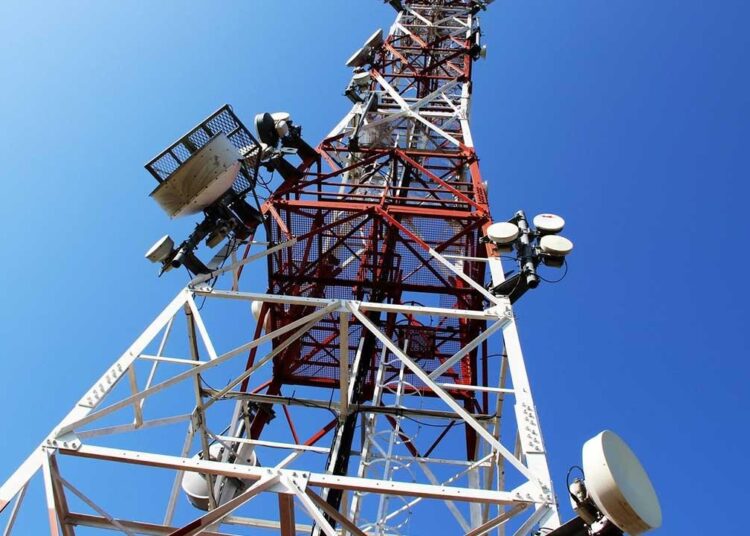Over the years, telecommunications companies have faced continuous threats by states government to shut down their base stations, over alleged unpaid taxes and levies.
For instance, in 2018, Kogi state government shut down 150 base transceiver stations belonging to mobile telecoms operators as a result of disputes arising from taxes and levies.
As a result of these actions by Kogi state government, operators were unable to refuel power generators in these sites, a situation which led to outage of over 150 sites including hub sites across parts of Kogi state.
In September, 2023, the Oyo state government sealed off some commercial banks and telecommunications masts in Ibadan, Oyo State. The state government said the action was due to non-compliance of operators as regards revenue payment to the state government.
„The commercial banks and the telecommunications outfits have been served notices before the enforcement team visited them. Once they pay the required Land use charge, their premises would be re-opened for business,“ the Oyo state government stated.
In 2014, the Osun state government also threatened to confiscate the base stations of telecommunications’ operators, following their refusal to pay the right of way permit fees due to the state government to the tune of N399.4 million and recently, the state government is not resting on its laurels, as it has contracted a private consulting firm to conduct a telecoms infrastructure installation audit, an exercise projected to generate N500 million as revenue from telecoms operators that were dully licensed to operate in the state.
Telecom companies have lamented the more than 50 taxes imposed on them. To them, the taxes are too numerous, given the high cost of doing business in the nation.
The companies, under the auspices of the Association of Licensed Telecoms Operators of Nigeria (ALTON), averred that, there are 50 taxes and levies, that they are paying. „Most of them have nothing to do with telecommunications. For instance, levies like convulsion levy, conclusion levy, sanitation and fumigation levy for the sites in the forest where there are rodents, have nothing to do with telecommunications,“ they posited.
The head, operations at ALTON, Gbolahan Awonuga told LEADERSHIP that telecom operators in Nigeria contribute the most to the country‘s Gross Domestic Product (GDP). „We pay the most VAT of any company. Operators pay several taxes to the federal government, many of which are duplicated at the state level,“ Awonuga disclosed.
While averring that states have the power to impose taxes, Awonuga, however, affirmed that, they don‘t have absolute power, as telecoms is under exclusive list of the federal government.
„We are not saying that States have no power; they have power in some areas but not absolute power because telecoms is under an exclusive list of the federal government. For instance, shutting down of base station sites is not acceptable, just to mention a few.
„So in essence, States have no power to shutdown sites. In fact, it is criminal because those infrastructure are critical national infrastructure that must be protected by all, especially in the era of digital economy where everything now depends on telecom services.
„We are talking about e-government, e-health, e-agriculture, banking, ATM, that depend on data to function. If you shut down sites then you are shutting down the economy of that particular location,“ he further explained.
He stated that, the issue of quality of service is traced to the inadequate number of sites, while adding that telecom services are driven by terrestrial infrastructure, and yet, the infrastructure available in Nigeria is grossly inadequate to the large number of subscribers.
Recall that the federal government planned to achieve 50 per cent broadband penetration before the end of 2023 and 70 per cent target by 2025.
„If the few infrastructures are shut down due to unnecessary taxes, it will stifle federal government plans of achieving its broadband penetration targets,“ Awonuga averred.
ALTON members are natural partners in progress, as they are all responsible corporate citizens in wherever they operate, Awonuga averred, while disclosing that ALTON is engaging the States and agencies on the implications of their action. „So far, we were able to resolve amicably, the issue in some states and to those that are difficult, we will go to court for interpretation of the law,“ he averred.
He called for an urgent review of the tariffs as the industry is not isolated to the ecosystem. „The numbers are no longer adding up and l fear if urgent step is not taken to review the tariff, there could be crisis in the industry and no sector is immune to crisis,“ he appealed.
Awonuga however applauded the Nigerian Communications Commission (NCC) for doing its best to educate the tiers of government on the implications of multiple taxation.
We’ve got the edge. Get real-time reports, breaking scoops, and exclusive angles delivered straight to your phone. Don’t settle for stale news. Join LEADERSHIP NEWS on WhatsApp for 24/7 updates →
Join Our WhatsApp Channel










